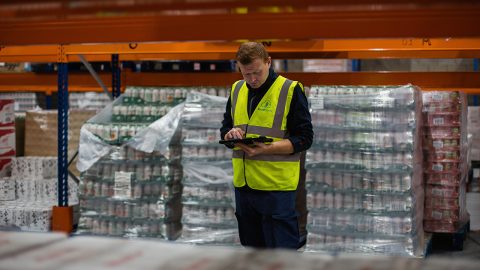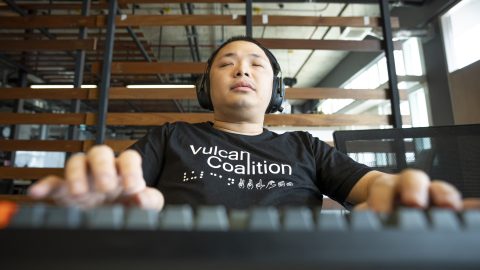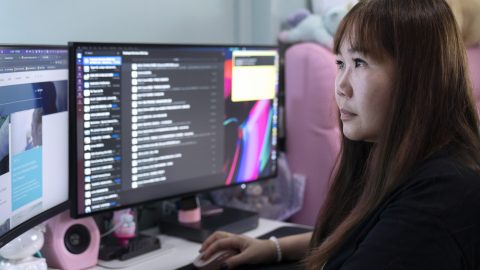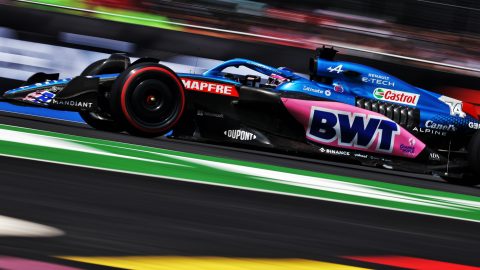Key to happiness is productivity, millennials say; key to productivity is prioritizing, Levo’s Caroline Ghosn says
Caroline Ghosn is the founder of Levo, a professional network for millennials that’s named after the Latin root for “elevate.” We recently sat down with Ghosn to discuss New Year’s resolutions and the results of a survey about productivity Microsoft and Levo conducted in November.
Transform: The survey showed that productivity is key to happiness. So what’s the key to being more productive?
Caroline Ghosn: It’s really about doing the right things, not doing more things. Levo is focused on millennials in the early stages of their careers, and we found that there’s a misconception, especially in one’s first job, that you just need to crank out as much as you can. But that can lead you down a path where you work really hard, and you exert yourself, and you might not manage your energy well, and then you come up for air and ask yourself, wait, why did I do all that, because the list keeps growing. So the antidote to that is to rigorously prioritize that you’re doing the right things, and then make sure you hit 100% of those, as opposed to trying to just get through as high a quantity as you can.
Every day I write down the three things I have to do today, and I make sure I get to those. And then everything else I do gets prioritized from No. 4 all the way down, because that list rolls over. I’m not going to finish my entire to-do list in one day. But I am going to finish the three most important things. And that helps me both feel a sense of accomplishment, but also get comfortable with the fact there’s an ever-growing to-do list that’s out there, and having that be a strength and not an onus.
Transform: There’s a lot going on in the world today that can make it hard to concentrate on one’s job. Distractions are the biggest obstacle to productivity, so how do you recommend increasing focus and reducing interruptions?
Ghosn: Millennials are the first generation in the world to be digital natives. I’ve never known what it’s like to not have the internet and not have these distractions. And that’s both wildly empowering, in terms of the access to information and all the amazing things that come along with it, and also a huge potential for distraction. The possibility of distraction creates the opportunity for even stronger organization. You need to understand how you’re spending your time during different parts of your day. I don’t try to fill every nook and cranny of my time with that additional tweet or email. I create blocks of time dedicated to different activities.
Research has shown the brain expends significant processing power in switching elevations, from a strategy meeting to a tactical email to a tweet. So what you’re trying to do is not bounce around those different levels within the same period of time. Instead, block off a period of time where you’re going to do strategy uninterrupted, for example, and then where you’ll get through emails, and where you’ll promote your brand on social media. So I think about creating organized spaces so my mind can expend as little energy as possible trying to switch gears.
I’m not going to finish my entire to-do list in one day. But I am going to finish the three most important things.
Transform: The majority of those surveyed said they’re most productive in the mornings. What’s your advice for those who aren’t, or for anyone whose strengths might be outside the norm in their career – what are ways someone who’s not a morning person can thrive in a position where the days are heavily front-loaded, for example?
Ghosn: I love this question, because I’m not a morning person. The short answer is that you’ve got to make it work for you. The long answer is to really think about this concept of spaciousness. Part of the reason I wasn’t excited about the morning is because my mornings would start with me basically springing into my day with email, with no slow ramp-up and no time for mindfulness. I woke up every day knowing there was something I needed to deal with, and I needed to go from zero to 100. That’s like starting a car that’s still being defrosted, is low on fuel and isn’t yet out of the garage. You’re not going to speed in that situation. You need to do things one step at a time.
So my solution was to wake up earlier, and I know that’s counterintuitive, but now I have an hour where I’m not being interrupted. Part of the reason I like being a night person is that most people don’t call you at midnight, and you have a lot more uninterrupted time. That’s what I get my energy from. So I created that for myself in the morning. I don’t check my phone for the first hour of my day, and if that means waking up early, that’s OK because it feels like a blessing. I read a book and drink coffee slowly, and speak with my family members, and hang out with my dog, and do a daily meditation. By the end of that hour, I’m fully awake and caffeinated, and in a good mood, and now I’m ready for my day. So I created space that worked for me, on my own terms, and now I’m excited about that time, I’m not dreading that time.
Transform: Do millennials face different challenges to productivity than employees over 30, and if so, how do you help them overcome those difficulties?
Ghosn: There’s a researcher named Judy Estrin, who I love, and she gave a Ted talk about balancing your digital diet. She and I went on a hike around the Stanford campus and talked about this, and she said, ‘You millennials have the beauty and privilege of having access to all of this technology and information that I didn’t have access to. But you also now have to learn how to consume that with moderation and balance that diet.’ In the same way as when industrial sugar became cheaper and all these products filled the aisles that families could now buy, they had to face how much to eat and how much is healthy. Our generation is doing that for digital. It will take a generation or two to learn. Track what is working and what’s not, so you’re learning from your experiences. Case in point: I’m not a happy person when the first thing I see when I wake up is my email. So that’s an important thing for me not to do any more.
As a manager of a millennial, help that person find that balance. Teach them the tactics that work for you. They may not be the same tactics that person will adopt, but helping them through the process of learning how to balance their digital diet and think about technology integration and productivity will make you a better manager and build that connection with that person.
Transform: What is your No. 1 New Year’s resolution? And how do you plan to achieve it?
Ghosn: I am reading the Marie Kondo book about decluttering, and I’m in the middle of that process that is named after her, KonMari, right now. My New Year’s resolution is to complete my KonMari and to enter 2017 with no clutter in my life, physical and metaphorical. Physically it means cleaning up my life. Metaphorically it means, what are the things I’m doing or who are the people in my life that don’t serve me or don’t make me happy, and what are the mistakes I keep making over and over, that are also psychological clutter, that I need to face and discard once and for all? What are the old habits that aren’t serving me and don’t make me happy? That’s clutter, too, because it’s taking up brain space and making you worried and anxious, so that you perform less than you could be performing.
So I want to enter the New Year clear, focused, true to myself and clutter-free. That will open up new possibilities. It’s about focusing on what’s important and nothing else, and being completely, 100-percent comfortable with saying ‘no’ to the things that clutter your life. That’s a really hard shift, so I’m hoping we’ll get there.








